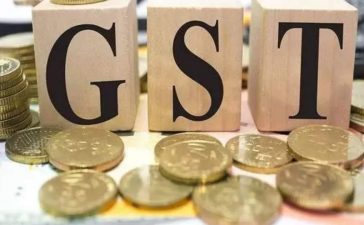Several broadband providers are set to hike their prices by over 14%, the highest increase in decades.
Millions of low-income broadband customers are set to be affected by the steep price increase next month.
According to research by consumer watchdog, Which?, low-income customers (with a household income of less than £21,000) will see price increases of up to £77 per year.
The watchdog is calling on telecom companies to ‘urgently’ cancel 2023 mid-contract price hikes for financially vulnerable customers.
‘With less than two weeks to go until April price increases take effect, it’s hugely concerning that some providers have not taken action to protect financially vulnerable consumers from these hard to justify above-inflation price hikes,’ said Rocio Concha, Which? Director of Policy and Advocacy.
Every April, providers calculate their increases by taking inflation in either the consumer prices index (CPI) or retail prices index (RPI) and adding more on top – usually between 3.4 and 3.9 per cent.
Considering RPI inflation stood at a 40-year high of 13.4 per cent in December, this year’s increase could break the bank.
These price rises are often applied mid-contract, so affected customers either have to accept the increases or pay costly exit fees to leave their contract early.
This year, broadband firms will go ahead with price hikes of over 14% in spite of calls from Which? to cancel 2023 hikes for financially vulnerable consumers and allow all customers to leave without penalty if they face mid-contract price rises.
Few firms like Vodafone and TalkTalk confirmed that they would automatically exempt their financially vulnerable customers from this year’s price rises. Which? is calling on all other providers to make the same commitment.
The average price of broadband in the UK is around £40 with contracts ranging from £22.99 to £55 a month. This means homes could pay between £3.31 and £7.92 extra for their internet. Over the course of a year that adds up to between £39.72 and £95.04 that customers will have to find in their budgets.
The price rises will vary depending on the provider and the terms of the contract. For example, Sky customers are expected to see an 8.1 per cent increase, Virgin Media O2 customers may expect 13.8 per cent and BT customers, 14.4 per cent.
‘This regulated CPI-linked price rise is preventable. There is still time for Ofcom to act and reduce the wholesale price increases that lead to these price rises. These are exceptional circumstances, and families and businesses across the UK need the regulator to act,’ a TalkTalk spokesperson told Metro.co.uk.
The average low-income customer affected by next month’s price rise could save as much as £220 a year by switching to the cheapest widely-available social tariff, according to Which?’s latest research.
If you’re out of contract, then it may be a good time to switch providers and see if you can get a cheaper deal elsewhere.
It’s also worth haggling with the providers to see if you can get them to give you a cheaper rate. Quoting the prices offered for new customers is one way to try and put them on the back foot when negotiating for a contract.
The one ray of light is that not all broadband deals will increase in price. There are ‘social tariff’ deals that are frozen in price.
If you’re with a provider that offers a social tariff (such as BT and Vodafone), your provider will also waive any termination fees to allow you to move onto their social tariff. Eligible EE and Plusnet customers can also move to BT’s social tariffs without having to pay an exit fee.
Providers that don’t offer a social tariff – such as TalkTalk – may allow customers to switch away to another provider’s social tariff without incurring an exit fee, but this is generally decided on a case-by-case basis.
With just weeks to go before record-high price hikes on broadband and mobile, Which? found that three-quarters of low-income consumers were still unaware of social tariffs.
MORE : Broadband price hikes to be investigated by watchdog as costs soar
MORE : Free online calculator shows how much your broadband price is going up
What is Ofcom and what does it cover?
Ofcom is the regulator for the communications services that we use and rely on each day.
The watchdog makes sure people get the best from their broadband, home phone and mobile services, as well as keeping an eye on TV and radio.
Ofcom deals with most content on television, radio and video-on-demand services, including the BBC. However, if your complaint is about something you saw or heard in a BBC programme, you may need to complain to the BBC first.
Its rules for television and radio programmes are set out in the Broadcasting Code.
The rules in the Broadcasting Code also apply to the BBC iPlayer.
This Broadcasting Code is the rule book that broadcasters have to follow and it covers a number of areas, including; protecting the under-18s, protecting audiences from harmful and/or offensive material and ensuring that news, in whatever form, is reported with due accuracy and presented with due impartiality.
Audiences can complain to Ofcom if they believe a breach of the Broadcasting Code has been made.
Every time Ofcom receives a complaint from a viewer or listener, they assess it to see if it needs further investigation.
If Ofcom decide to investigate, they will include the case in a list of new investigations, published in the Broadcast and On Demand Bulletin.
An investigation is a formal process which can take some time depending on the complexity of the issues involved.
Ofcom can also launch investigations in the absence of a complaint from a viewer or listener.













